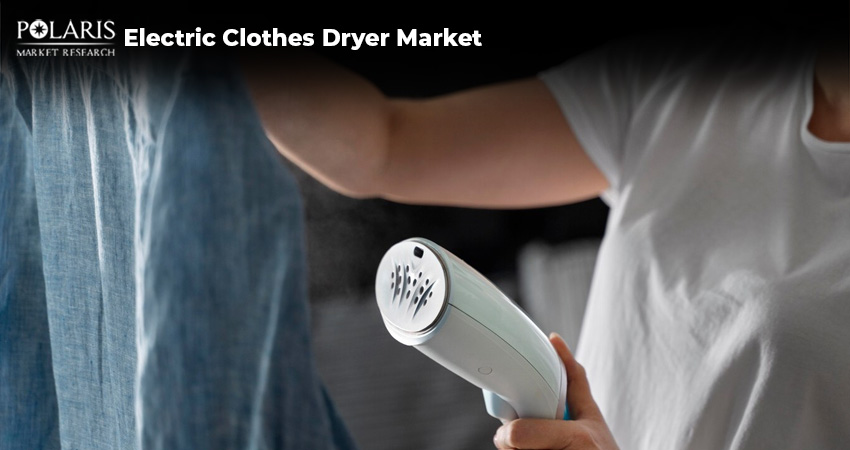Examining Leading Top 7 Companies in the Electric Clothes Dryer Market

Gone are the days of relying on sunshine or hanging clothes indoors to dry. Electric clothes dryers have transformed laundry care by offering convenience, efficiency, and reliability regardless of weather conditions. These appliances have become an integral part of modern households, saving time and effort while delivering perfectly dried clothes. Designed with cutting-edge technology, electric dryers not only ensure faster drying but also protect fabrics with advanced features like sensor drying, steam refresh, and eco-friendly modes.
From compact models for small spaces to high-capacity options for large families, today’s dryers cater to diverse needs and preferences. In this blog, we delve into the world of electric clothes dryers, exploring their types, benefits, and technological advancements.
Understanding Electric Cloth Dryers
Electric clothes dryers are home appliances designed to remove moisture from clothing and other textiles after washing. Using heat and mechanical motion, these machines offer an efficient and convenient solution for drying laundry. They work by drawing air, heating it, and passing it through a rotating drum that tumbles the clothes. The moisture-containing air is then expelled or condensed, assuring homeowners of the efficiency of their investment.
Key Benefits of Cloth Dryers
Electric cloth dryers offer several benefits. Out of which a few are discussed below.
- Time Efficiency
Electric dryers can dry clothes significantly faster than natural air drying, making them ideal for busy households.
- Convenience
Unlike the process of line drying, electric clothes dryers function regardless of weather conditions, providing a reliable option for every season.
- Fabric Care
Modern-day clothes dryers come with specialized settings tailor-made for various fabrics, ensuring clothes are dried gently without damage.
- Energy Efficiency
Advancements in technology, especially in heat pumps and smart dryers, have reduced energy consumption, making them eco-friendly choices.
Types of Electric Clothes Dryer
There are different types of clothes dryers available nowadays. A few of them are discussed below.
Vented Dryers
Vented dryers are a type of tumble dryer that removes moisture from clothes by expelling hot, damp air outside through a vent or hose. They are a traditional choice for drying clothes and are known for being quick and effective.
Condenser Dryers
A condenser dryer is a type of tumble dryer that removes moisture from clothes and stores it in a container. The dryer then cools the hot, moist air, turning it into water droplets.
Heat Pump Dryers
A heat pump dryer is a type of tumble dryer that uses a closed-loop system to dry clothes. It's considered one of the most energy-efficient types of dryers available.
Smart Dryers
Integrated with IoT technology, these are dryers that can connect to your home's Wi-Fi network and be controlled remotely using a smartphone, tablet, or smartwatch. They use sensors and smart technology to automate the laundry process, save energy, and personalize drying cycles.
Technological Advancements in Electric Clothes Dryers
- Sensor Drying technologies
Sensor drying technology in cloth dryers uses sensors to measure the moisture level in the dryer drum and automatically adjusts the drying time. This technology helps prevent over-drying and can also help reduce energy consumption.
- Wi-Fi Connectivity and Smart Controls
Integration with home automation systems and smartphone apps has transformed dryers into smart devices, allowing users to control cycles remotely.
- Steam Dryers
Steam dryers are similar to regular dryers, but they also have a steam drying option. Steam technology reduces wrinkles and odors, making clothes fresher without the need for ironing.
Top Companies in the Electric Clothes Dryer Industry
Whirlpool Corporation was founded in 1911 in Benton Harbor, Michigan. The company's headquarters are still located in Benton Charter Township, Michigan. Whirlpool is a global leader in home appliances, known for its durable and innovative electric dryers. Their products often feature sensor drying, energy-efficient designs, and advanced fabric care technologies.
- LG Electronics
LG Electronics was founded in 1958 as GoldStar and is headquartered in Yeongdeungpo District, Seoul, South Korea. LG is renowned for blending style with functionality. Their dryers are equipped with AI-driven features, energy efficiency, and modern aesthetics.
Samsung Electronics is a South Korean multinational electronics and information technology company headquartered in Suwon, South Korea. It was founded in 1969. Samsung’s dryers stand out for their advanced technology, smart features, and sleek designs. They focus on customer-centric innovations.
- Bosch
The journey of bosch started as the "Workshop for Precision Mechanics and Electrical Engineering." It was established in Stuttgart, Germany in 1886. The company's headquarters are currently in Gerlingen, Baden-Württemberg, Germany. Bosch is synonymous with energy efficiency and precision engineering. Their dryers are eco-friendly and quiet and feature heat pump technology.
- Electrolux
Electrolux Group was founded in Stockholm, Sweden in 1919. The headquarters of Electrolux are based in Stockholm, Sweden. Electrolux is a premium brand offering dryers with innovative features like Perfect Steam and Predictive Dry. They focus on efficiency and user convenience.
Market Trends and Future Outlook
Integration of Artificial Intelligence (AI) and Machine Learning
With the introduction of AI-driven technologies for machine learning and predictive drying algorithms, the market for electric clothes dryers is expected to expand in the future.
Rising Demand for Energy Efficiency
With increased focus on sustainability, energy-efficient models like heat pump dryers are gaining popularity.
Smart Home Integration
Smart dryers are becoming integral to connected home ecosystems, allowing seamless operation through voice commands and apps.
Sustainability Initiatives
Companies are investing in recyclable materials and sustainable manufacturing processes to meet eco-conscious consumer demands.
Conclusion
Electric clothes dryers are more than just household appliances. They are a reflection of technological progress and evolving lifestyles. With advancements like smart connectivity, energy efficiency, and eco-friendly options, they continue to redefine convenience and sustainability in laundry care. As the market grows, consumers can expect even more innovative features, ensuring that electric dryers remain a staple in households worldwide.

